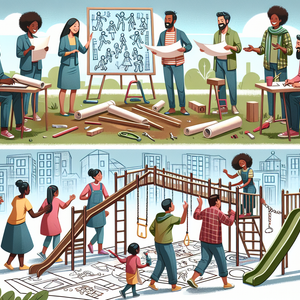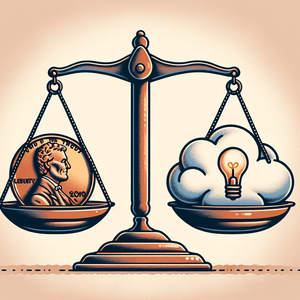The Future of Learning: What Khan Academy Can Teach Us About Personalized Education

Personalized learning is an educational strategy designed to tailor instruction to meet the varied needs, interests, and learning preferences of each student. Unlike traditional educational models that often follow a one-size-fits-all approach, personalized learning acknowledges that students learn at different paces and have unique strengths and weaknesses. At the forefront of this movement is Khan Academy, which exemplifies how technology can facilitate a more individualized approach to education, making learning more accessible and effective.
The Khan Academy Model
Founded in 2008 by Salman Khan, Khan Academy aims to provide a free, world-class education for anyone, anywhere. With a comprehensive library comprising thousands of instructional videos, exercises, and assessments across various subjects, Khan Academy is redefining how students engage with educational content. Central to its success is the emphasis on adapting learning experiences to fit individual students.
Mastery-Based Learning
A cornerstone of Khan Academy’s approach is mastery-based learning, which allows students to progress through content at their own pace. This ensures that students fully grasp a concept before advancing to the next topic. For instance, a student who struggles with fractions can invest additional time in mastering that topic, engaging with interactive exercises and instructional videos until they achieve proficiency. This flexibility boosts confidence and fosters a deeper understanding of the material, as students are not pressured to keep up with their peers.
Data-Driven Insights
Khan Academy utilizes data analytics to provide personalized feedback and insights to both students and educators. The platform tracks student performance through quizzes and exercises, enabling learners to monitor their progress in real-time. Educators benefit from detailed reports that highlight areas of strength and weakness, allowing them to tailor their instruction to meet the specific needs of their students. This data-driven approach cultivates a collaborative environment focused on growth, empowering both learners and teachers.
Implications for Future Educational Models
The success of Khan Academy's personalized learning approach offers valuable insights for the future of education. As technology continues to advance, educational institutions can adopt similar strategies to create more customized experiences for students.
Blended Learning Environments
The integration of online platforms like Khan Academy into traditional classroom settings can facilitate blended learning environments. In this model, teachers can incorporate personalized online resources alongside in-person instruction, allowing students to take ownership of their learning. For example, teachers might assign Khan Academy exercises as supplementary material, enabling students to explore concepts at their own pace while receiving guidance during class discussions. This approach not only enhances the learning experience but also fosters a culture of collaboration and inquiry.
Empowering Student Agency
Personalized education nurtures student agency, encouraging learners to set goals and take control of their educational journeys. By incorporating elements of choice and self-directed learning, students become more engaged and motivated. Khan Academy exemplifies this by allowing users to select topics of interest, choose their learning paths, and revisit materials as needed. This empowerment fosters a love for learning, as students feel more invested in their education and are more likely to pursue their interests passionately.
Khan Academy has set a precedent for personalized learning in the digital age, demonstrating that education can be tailored to meet the unique needs of each student. Its mastery-based learning model and data-driven insights provide a roadmap for future educational practices, emphasizing the importance of flexibility, engagement, and student agency. As we look to the future, it is evident that embracing personalized education will be vital in preparing students for an ever-changing world, ensuring that every learner has the opportunity to thrive. By leveraging technology and adopting a more individualized approach, educators can create learning environments that inspire curiosity, foster creativity, and ultimately lead to greater academic success. In doing so, they can help shape a generation of learners equipped to navigate the complexities of the modern world.
Educational Technology Specialist
Google for Education, Blackboard
Core Responsibilities
Design and implement technology-based learning solutions that enhance personalized education experiences.
Collaborate with educators to integrate digital tools and resources into curriculum development.
Conduct training sessions for teachers on effectively using educational technologies, such as learning management systems and interactive software.
Required Skills
Proficiency in various educational technologies and platforms (e.g., LMS, adaptive learning software).
Strong understanding of instructional design principles and personalized learning strategies.
Exceptional communication and collaboration skills to work effectively with faculty and staff.
Learning Experience Designer
Coursera, LinkedIn Learning
Core Responsibilities
Create engaging and interactive learning experiences tailored to meet diverse learner needs.
Utilize data analytics to assess learner engagement and effectiveness of educational materials.
Collaborate with subject matter experts to ensure content accuracy and relevance.
Required Skills
Expertise in instructional design and development, including familiarity with multimedia tools.
Strong analytical skills to interpret learner data and adapt experiences accordingly.
Understanding of user experience (UX) design principles as they apply to educational contexts.
Data Analyst in Education
Bill & Melinda Gates Foundation
Core Responsibilities
Analyze student performance data to provide insights that inform teaching and curriculum decisions.
Develop dashboards and reports for educators and administrators to visualize student progress and outcomes.
Identify trends and patterns in educational data that can drive personalized learning initiatives.
Required Skills
Proficiency in data analysis tools and software (e.g., Excel, SQL, Tableau).
Strong understanding of educational metrics and assessment methods.
Ability to communicate complex data insights clearly to non-technical stakeholders.
Curriculum Developer for Personalized Learning
Core Responsibilities
Design and develop curriculum materials that foster personalized learning experiences for students.
Evaluate and revise existing curriculum based on student feedback and performance data.
Collaborate with educators to align curriculum with educational standards and student needs.
Required Skills
Strong knowledge of curriculum design principles and educational theories related to personalized learning.
Experience in creating diverse educational materials, including assessments and interactive content.
Excellent project management skills to oversee curriculum development timelines and milestones.
Online Learning Facilitator
edX, Skillshare
Core Responsibilities
Guide and support students in online learning environments, fostering engagement and motivation.
Monitor student progress and provide personalized feedback to enhance learning outcomes.
Facilitate discussions and group activities, creating a collaborative online learning community.
Required Skills
Experience in online teaching and knowledge of best practices for virtual learning environments.
Strong interpersonal skills to effectively connect with students and address their individual needs.
Familiarity with online education platforms and tools (e.g., Zoom, Google Classroom).


